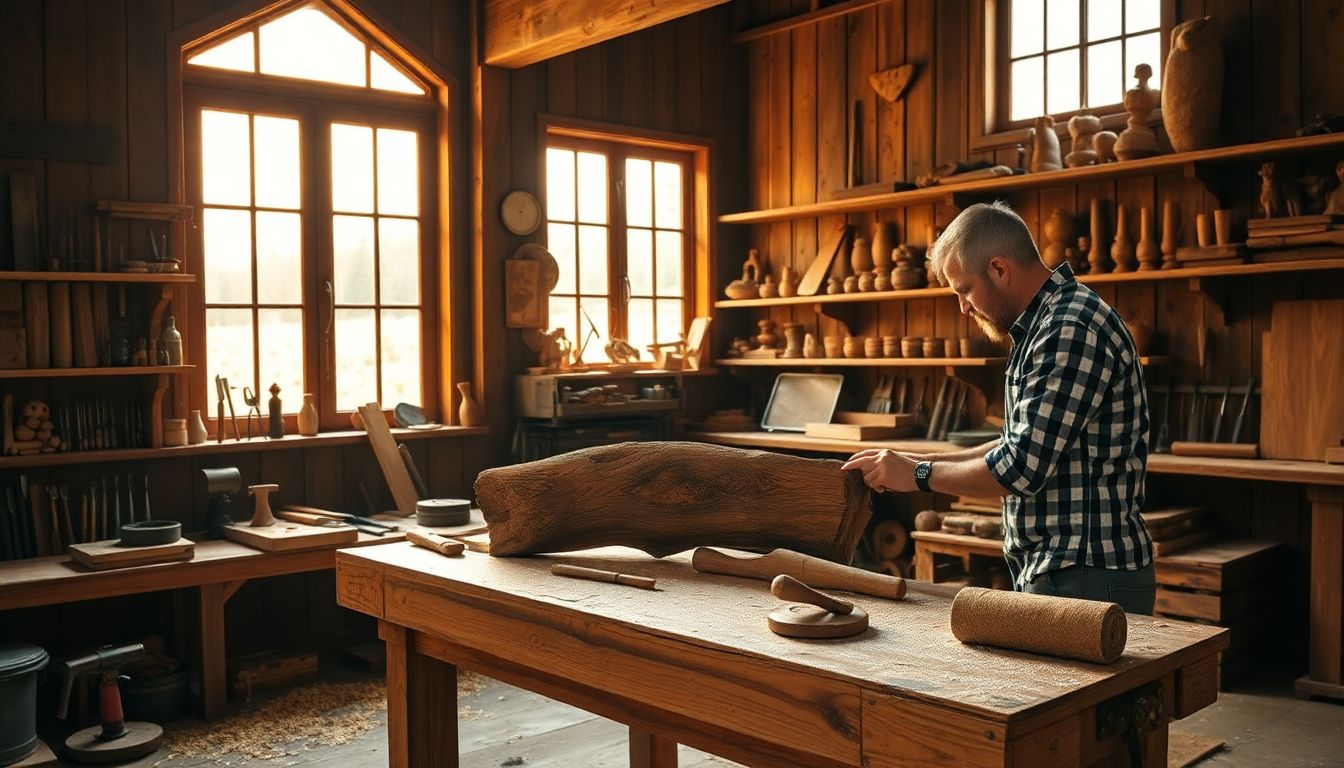Introduction
Craft workshops are more important now than ever. They allow you to learn and to build support communities. You might need to wood-carve, weave, or throw, but learning through experience works. It gets your mind working in a creative way, preserves heritage, and puts mental well-being on an even keel. By “workshops root,” we refer to the pillars which give craft workshops significance and endurance. The root is the pillar which gives craft practice endurance from one year to another.
Instructional Workshops Definition of Root through Workshops Root What is Workshops Root in Craft
“Rooted workshops” is values thinking and values principles that offer us good workshop craft. It is not the teaching of skills. It is transmission of tradition, building of friendship, and building of respect for cultural practice. It is the root that will sustain learning skill and tradition transmission of craft. Where there are rooted workshops, they are concrete experience that sustain.
The Importance of Embedded Craft Practices
Why hold on to traditional craft techniques? It keeps cultural heritage. The students learning crafts with histories appreciate quality and not quantity and newness and not novelty. There have been tests where it is confirmed that the students learn more about the technique when they feel a sense of the worthiness of the techniques. The practice permits rightful transferring of skills and traditions that were transmitted over thousands of generations.
Key Elements of Workshops Root
Key elements constructing traditional workshops include the following:
- Learning by doing
- Guidance by experienced craftsmen
- Human touch
- Cultural myth and history respect
For example, the best craft workshops provide traditional basketry at its best via the use of indigenous elderly persons with oral tradition. The workshops maximize learning as well as deepen intergeneration relationship.
Developing Successful Traditional-Based Workshops
Well-designed workshop with cultural sensitivity
Begin with crafts that will be suitable to local culture. Discover and research culture-based crafts. A good idea would be for a Mexican program and papel picado, or paper-cutting craft. Discover projects that are sensitive to the community’s history and culture.
Including Authentic Materials and Techniques
Always work with `original material—i.e., natural dyes or local fibre sources. Impart `traditional methods and not `shortcuts. It is not an `overnight job, `but doing it `with the suppliers in the locality or knowing the suppliers is simple. Credibility and `value `emanate to the `craft `from `authenticity.
Planning Workshops for Skill Development
Organize workshops in a way that a step-by-step learning experience is provided to the beginners. Begin with simple projects and move on to hard ones. Narrate stories to provide context to every skill. This is interesting and offers more learning.
Root
Building Community Through Craft
Workshops enable co-creation and collective experience. Workshops encourage colleagues to learn from one another and to teach one another. Honor local culture and work with local leadership. Just as firmly as people are tied by craft, they more firmly anchor themselves in culture and in local economies.
Cultivating Sustainability and Ethical Practice
Use green material anywhere and whenever possible. Teach minimal harm and waste to the environment. Enabling sustainable workshop practice is greener and authentic practice. Practitioners enable sustainable material sourcing practice use and low-harm chemicals.
Case Studies of Sustainable Workshop Initiatives
Use locally sustainable craft activities. A good example is an activity where individuals make cotton in their local areas to the point that they can be used in preparation for production of organically produced material. Such activities, apart from transferring skills, also introduce sustainable livelihood and economic growth.
Application of Technology towards Craft Workshops Root
Use of Digital Technology in Boosting Traditional Craft Workshops
Online courses and video courses make crafting skills accessible. The students are able to view all steps clearly even at home online. Apply actual techniques on Zoom or YouTube to summarize them in a condensed and secure way and maintain traditions in new forms.
Hybrid Workshop Models
Offline and online courses were simpler. Example: Coordinate face-to-face weaving workshop and later group challenges later online. Open time slot accommodated many students and meshed with wacky schedules.
Directions in the Future of Craft Workshops
Social media and new technologies continue to revolutionize craft teaching. Anchor practice of craft through live streaming, 3D printing, and phone apps spans the world. They present the audience and maintain tradition in the modern world.
Craft Workshops Root Success and Impact Measurement
Criteria for Evaluation to Quantify Workshop Success
Monitor the number of workshop participants who have accomplished project work, acquired new skills, and experienced local culture. Use feedback derived from surveying. Use outcomes in streamlining and rewriting future workshops.
Long-term Benefits to Participants and Communities
Individuals learn new skills, become more confident and proud to be of heritage. Towns also become more affluent from craft product sales, or tourist expenditures, created to local communities. One demonstration is that of one village craft centre that increased local incomes by 20% within a year.
Gathering and Accumulating Comments
Take participant feedback about what was liked and how to do it differently. Leave room open for feedback and use it to drive workshops forward. Active learners will have a tendency to become life-long proponents of well-reasoned traditions.
Conclusion
Create rooted workshops to develop rich and long-term craft practice. Put authenticity, community, and sustainability first. Increment new tools without losing the root practice. Invest in rooted crafts and you are able to preserve cultural histories, build local economies, and produce the next generations. Start creating the roots of your workshops today, and your craft practice will be richer and stronger.
